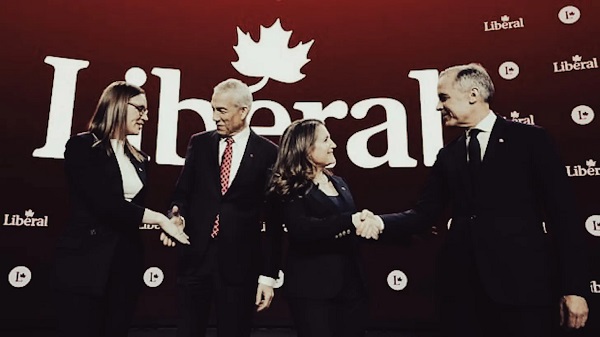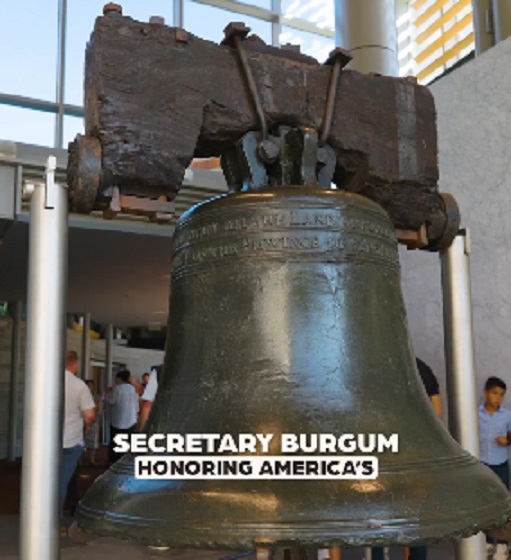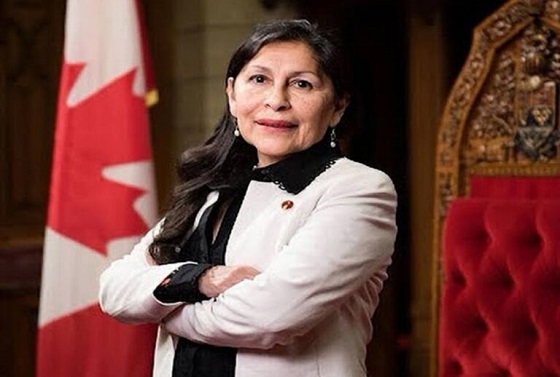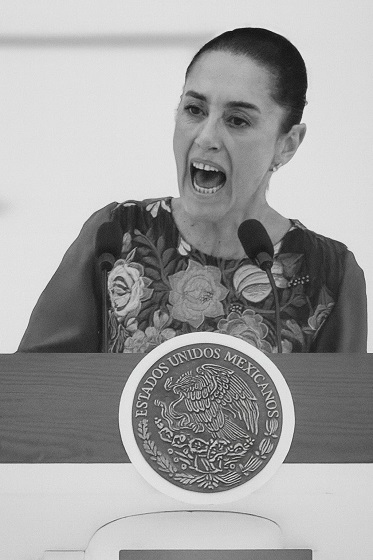National
No enthusiasm, no movement—just media spin trying to sell a Liberal comeback that doesn’t exist

Liberals Picks Mark Carney as their new leader and Calls It ‘Historic’—But Let’s Look at the Numbers
Oh, look—it’s the biggest non-event in Canadian politics: the Liberal Party leadership race! The CBC, bless their little subsidized hearts, have been hyping this up like it’s some kind of monumental moment for democracy. Like Canada is holding its breath to see who will replace Justin Trudeau.
And listen, I’ll say this—thank God we don’t have to watch Trudeau waffle around anymore. That guy spent nearly a decade embarrassing Canada on the world stage, throwing out empty platitudes, and burdening Canadians with crushing taxes while his buddies made millions off government contracts. Good riddance.
But here’s the thing: who are they replacing Trudeau with? Enter Mark Carney. The media is desperately trying to sell you this idea that he’s some kind of outsider. An outsider! Right. Because nothing says “outsider” like a guy whose signature is literally on the country’s currency.
Even John Stewart—who, once upon a time, was a sharp comedian but is now just another Democratic Party lapdog—got on The Daily Show and actually tried to push this nonsense. During the Liberal leadership debate, Carney himself got up there and tried to gaslight Canadians, claiming he’s not a politician, just a pragmatist. A pragmatist! Oh, of course. He’s not a career political insider—he’s just a guy who ran the Bank of Canada, then ran the Bank of England, then bounced around every globalist economic institution imaginable before parachuting into Ottawa. Just your average outsider, folks.
Mark, come on. You are literally the definition of an establishment insider. You’ve been embedded in the power structure of this country for decades. You’ve been making economic decisions that affect millions of Canadians while sitting in rooms with the wealthiest elites on the planet. But now, we’re supposed to believe you’re just a humble, practical guy stepping in to help? No, Mark—you’re running to be Prime Minister. That is literally the definition of being a politician. Own it.
Let’s talk about enthusiasm—or, more accurately, the total lack of it when it comes to the Liberal Party of Canada. The media is working overtime, trying to convince you that this party is roaring back to life after Trudeau’s exit, that a “new era” has begun, that Canadians are rallying behind their fresh new leader. And yet, when you actually look at the numbers, the whole thing falls apart faster than a Liberal campaign promise.
The Liberal leadership race—the big moment where the party supposedly reinvents itself, the grand rebirth, the resurrection the media won’t stop talking about—managed to pull in a whopping 151,899 votes. That’s everyone who participated. Just to be clear, this wasn’t some exclusive club—you didn’t have to pay to vote, you didn’t even have to show any real commitment. Memberships were free. The party was practically begging people to sign up. And still, after all the hype, all the coverage, all the desperate attempts to make this seem like a big deal, they couldn’t even break 152,000 votes.
Meanwhile, let’s rewind to 2022. The Conservative leadership race—where people actually had to pay money to vote—brought in 417,987 ballots. And just Pierre Poilievre alone? 285,000 votes. Let me repeat that—Poilievre, by himself, got almost twice as many votes as the entire Liberal Party could muster. But sure, let’s pretend there’s a massive groundswell of excitement for Mark Carney, a guy nobody outside the Laurentian elite even wanted in the first place.
And here’s where it gets even better. The polling—oh, the polling. For months, the Liberals have been sinking. Before Trudeau resigned, they were floundering at 24% support. Then, magically, within days of picking a new leader, they skyrocket to 33%? A 9-point jump in the blink of an eye? Wow, what a coincidence! You mean to tell me that the same Canadians who couldn’t be bothered to sign up for a free membership, the same Canadians who have overwhelmingly turned against this party, suddenly decided they’re on board again—just because the party swapped one out-of-touch elitist for another?
No. That’s not how this works. That’s not how enthusiasm works.
This isn’t some grand Liberal resurgence. This is the Liberal-friendly media manufacturing a comeback narrative because their government subsidies depend on it. The same journalists who screamed for years about the Conservative “far-right” threat are now bending over backwards to convince you that Mark Carney is a fresh outside
And you know what? Maybe if they had actually let Ruby Dhalla into this race, they would’ve stood a chance. Seriously. I had to do a double-take when I looked at her policies—supporting small business, tough on crime, actual immigration regulation—I mean, that’s how you win the center. That’s how you stop a Conservative majority and turn it into a minority government. If they had let her run, we’d be having a very different conversation right now.
But what did the Liberals do? Oh, they disqualified her over—get this—campaign finance irregularities. But guess what? They kept the money. That’s right. The party flagged “violations,” kicked her out, and then conveniently pocketed the cash. If that’s not the most Liberal Party thing I’ve ever heard, I don’t know what is.
Instead, they’re giving us Mark Carney, a guy who has zero grassroots appeal, who has never won an election in his life, and who thinks he can waltz into power simply because the Laurentian elite think it’s his turn. That’s the play here, folks. The media is going to prop him up, the political insiders are going to rally around him, and the Liberals are hoping that Canadians just go along with it.
But here’s the truth: Canadians aren’t buying it. The numbers prove it. The excitement isn’t there. The support isn’t there. And come election time, the Liberals are going to get a very rude awakening.
source:
- Mark Carney detailed profile and political aspirations
- AP News article on Mark Carney’s leadership bid
- CTV News profile on Mark Carney’s leadership run
- Liberal Party membership numbers announcement
- CBC News Poll Tracker for Canadian elections
- Ruby Dhalla’s Wikipedia page with political history
- CBC News report on Ruby Dhalla’s disqualification
- CBC News guide on following Liberal leadership coverage
Business
Man overboard as HMCS Carney lists to the right

Steven Guilbeault, Heritage Minister and Quebec lieutenant, leaves cabinet this week with his chief of staff, Ann-Clara Vaillancourt. He resigned on Thursday.
Steven Guilbeault’s resignation will help end a decade of stagnation and lost investment.
Steven Guilbeault’s resignation will come as no surprise to Mark Carney – save, perhaps, for the fact that it took so long.
The former environment minister quit on Thursday evening, after the prime minister unveiled his memorandum of understanding with Alberta premier, Danielle Smith. That deal is aimed at creating the conditions to build an oil pipeline to the West Coast and encouraging new investment in the province’s natural gas electricity generation sector. In doing so, Carney cancelled the oil and gas emissions cap and the clean electricity regulations that Guilbeault had been instrumental in constructing and imposing.
Fly Straight is a reader-supported publication.
To receive new posts and support my work, consider becoming a free or paid subscriber.
The former environmental activist couldn’t accept the continued expansion of fossil fuel production and so walked away after six years in cabinet.
In his resignation statement, he said he strongly opposes the MOU with Alberta because it was signed without consultation with the province of British Columbia and First Nations.
He said removing the moratorium on oil tankers off the West Coast would increase the risk of accidents and suspending clean electricity regulations, which blocked new gas generation, will result in an “upwards emissions trajectory”.
In particular, he was upset about the expansion of federal tax credits to encourage enhanced oil recovery, a carbon storage technology that captures carbon dioxide from industrial emitters and injects it back underground. Guilbeault considered this a direct subsidy for oil production – a business he said he hoped the government was exiting.
In a Twitter post, I called Guilbeault “anti-Pathways” – that is, opposed to the giant carbon capture and storage development that Carney views as crucial to offsetting the building of a new pipeline.
One of Guilbeault’s defenders said he is not anti-Pathways, and that, in fact, he was part of the trifecta, along with Chrystia Freeland and Jonathan Wilkinson, who negotiated the details on the investment tax credit “that will pay 50 percent of the cost of construction to a bunch of rich oil companies”. To me, that showed Guilbeault’s (and his supporters) true colours. If he wasn’t anti-Pathways, he certainly wasn’t pro.
When he said he would back Carney’s leadership bid in January, I wrote that it was an endorsement the aspiring Liberal leader could do without.
The now-prime minister always had in his mind a plan to build, including fossil fuel production, offset by technology adoption and a stronger industrial carbon price in Alberta. Even then, he made clear he was prepared to be pragmatic in a time of crisis.
Guilbeault’s plan was to regulate the industry to death.
It was always going to end badly but, as Carney told me last winter, Guilbeault provided crucial support on the ground in Quebec and any politician’s first responsibility is to win.
Guilbeault should be respected for his deep convictions on climate change and his commitment to leaving a better world to our children.
But he should never have been allowed to dictate environmental policy in this country. He refused to view natural gas as a bridging fuel in the energy transition in a country that has reserves of a resource that will, at current production levels, last 300 years.
He made clear his lack of enthusiasm for small modular nuclear reactors and new road-building.
And he pushed an oil and gas emissions cap that he knew would hit production levels and further (if that were possible) alienate Western Canadians.
His departure – and that of Freeland – give Carney scope to pursue what he hopes is a transformative response to not only Donald Trump, but to federal policies that amounted to driving with the handbrake on. Carney has made his intent clear – to optimize Canada’s resource wealth, while attempting to minimize emissions.
Five years ago, Trudeau was nearly tarred and feathered during a visit to Calgary; Carney received two standing ovations in the same town yesterday.
For too many years under the Trudeau/Freeland duopoly the plan was to redistribute the pie. Now it is clearly about wealth creation.
In my National Post columns, I have been scathing about some of the things the Carney government has done, as is appropriate for someone whose prime directive is the public interest. The decisions to recognize a Palestinian state; apologize to Trump for the Ontario “Ronald Reagan” ad; announce a bunch of major projects that were so advanced they didn’t need to be fast-tracked; split spending into the confusing binary of “operating” or “capital”; and visit the United Arab Emirates on a trade mission in the midst of a genocide in Sudan that the Emiratis had helped to fund were all, to me, missteps.
But, so far, Carney has got the big things right. The budget and this MOU are auspicious moves aimed at ending a decade of stagnation and lost investment.
There is a new mood of anticipation in the country, summed up in the S&P/TSX index, which hit record highs this week on the back of energy and mining stocks. Canadian pension funds are taking another look at the domestic market, intrigued by the prospect of investing in the potential privatization of airports, for example.
Canada is feeling better. There has been a shift in the mindset from saying no to everything to being open to removing barriers that stop the private sector from investing.
Success and prosperity are not guaranteed. But stagnation need not be either.
Fly Straight is a reader-supported publication.
To receive new posts and support my work, consider becoming a free or paid subscriber.
Energy
Mistakes and misinformation by experts cloud discussions on energy

From the Fraser Institute
By Jason Clemens and Elmira Aliakbari
The new agreement (MOU) between the Carney and Alberta governments sets the foundation for a pipeline from Alberta to the British Columbia coast, at least conceptually. Unfortunately, many politicians and commentators, including the bureau chiefs for the Globe and Mail and Toronto Star, continue to get many energy facts wrong, which impairs the discussions of how best the country can and should move forward to capitalize on our natural resources.
For example, commentors often wrongly describe the tanker ban on the west coast (C-48) as a general ban on oil tankers. But in reality, the law only applies to tankers docking at Canadian ports. It does not and cannot prevent tankers from travelling the west coast so long as they’re not stationing at Canadian ports. This explains the continued oil tanker traffic in the northwest region for tankers docking in U.S. ports in Alaska. Simply put, there is not a general tanker ban on the west coast.
Commentators also continue to misrepresent the current capacity on the expanded Trans Mountain pipeline (TMX). According to the Canada Energy Regulator (CER), the average utilization of the TMX since it came online in June 2024 is 82 per cent (reaching as high as 89 per cent in March 2025). So, while there’s some room for additional oil transportation via TMX, it’s nowhere close to the “doubling” being discussed in central Canada. Critically, though, according to the CER, from “June 2024 to June 2025, committed capacity was effectively fully utilized each month, averaging 99% utilization.”
Similarly, there’s a misunderstanding by many in central Canada regarding the potential restart of the Keystone XL pipeline, which apparently President Trump is keen on. Keystone would not diversify Canada’s exports because while oil does make its way down to the southern U.S. where it can be exported, the actual sale of Canadian oil is to U.S. refineries, so our reliance on the U.S. as our near-sole export market would continue unless a west and/or east coast pipeline is developed.
There also continues to be an artificial and costly connection made between Ottawa removing the arbitrary emissions cap on greenhouse gases by the oil and gas sector and the approval of a new pipeline with the proposed Pathways carbon capture project, which is a collaboration between five of Canada’s largest oil producers. This connection was galvanized in the MOU.
The idea behind the project is to reduce (conceptually) the amount of greenhouse gas (GHG) emitted from oil extraction and transportation projects linked with Pathways. The Pathways project produces no economic value or product—it simply collects and stores GHG emissions—and reports suggest the total cost for the first phase of the project will reach $16.5 billion.
Should Canadians care about adding costs related to GHG mitigation? There are several factors to consider. First, Canada is already a low-GHG emitting producer of oil. According to the Carney government’s first budget (page 105, chart 1.5 which ranks the world’s 20 top oil producers based on their GHG emissions per unit of output), Canada already ranks 7th-lowest in terms of emissions. And more importantly, it’s lower than every country—Venezuela, Russia, Iraq and Mexico—that produces a similar type of oil as Canada. Any resources spent further reducing GHG emissions via carbon capture will result in small incremental gains contrasted with large costs (again, at least $16.5 billion). A number of analysts have already raised concerns about the investment and competitiveness implications of increasing the cost structures for Alberta producers.
Second, according to the federal government, in 2022 Canada produced 1.4 per cent of global GHG emissions, and the oil and gas sector produced roughly one-quarter of those emissions. In other words, if Canada eliminated all GHG emissions from the oil sector via carbon capture, the process would consume vast amounts of scarce resources (i.e. money) and result in a nearly undetectable change in global GHG emissions. One can only conclude that this is much more about international virtue-signalling than the actual economics and environmental implications of Canada’s potential energy projects.
At a time when Canada is struggling with crisis levels of private business investment, falling living standards and as the Bank of Canada described, a break-the-glass crisis in productivity growth, it’s clearly not wise to spend tens of billions of dollars on projects that might make politicians and bureaucrats feel better and enable them to use near Orwellian language like “zero-emissions oil” but that actually deliver almost no detectable environmental benefits.
To borrow our prime minister’s favourite phrase, kickstarting Canada’s oil and gas sector is the easiest way to catalyze economic growth given our vast energy reserves, know-how in the sector, and high productivity. To do so, we need a national dialogue rooted in facts.
-

 Agriculture2 days ago
Agriculture2 days agoHealth Canada pauses plan to sell unlabeled cloned meat
-

 Crime2 days ago
Crime2 days agoB.C.’s First Money-Laundering Sentence in a Decade Exposes Gaps in Global Hub for Chinese Drug Cash
-

 Crime2 days ago
Crime2 days agoFBI Seizes $13-Million Mercedes Unicorn From Ryan Wedding’s Narco Network
-

 International2 days ago
International2 days agoAmerica first at the national parks: Trump hits Canadians and other foreign visitors with $100 fee
-

 Banks2 days ago
Banks2 days agoThe Bill Designed to Kill Canada’s Fossil Fuel Sector
-

 armed forces1 day ago
armed forces1 day ago2025 Federal Budget: Veterans Are Bleeding for This Budget
-

 Business2 days ago
Business2 days agoFederal major projects list raises questions
-

 Crime2 days ago
Crime2 days agoMexico’s Constitutional Crisis












